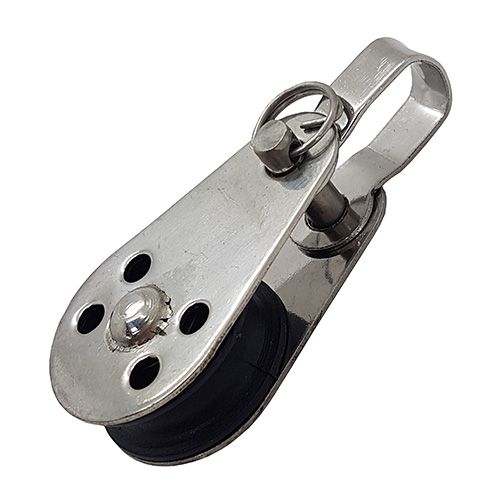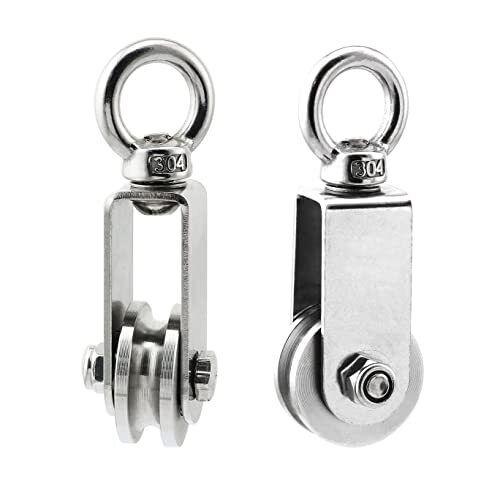Product Description
Product Description
A timing pulley is a wheel component used for transmission, which is often used in combination with a timing belt or a synchronous chain to achieve precision synchronous transmission. The timing pulley usually consists of 2 parts: the wheel flange and the hub. The wheel flange usually has a toothed structure that can be combined with a timing belt or chain to achieve a precise synchronous transmission effect. Synchronous wheels can be divided into 2 categories: grinding gear synchronous wheels and forged tooth synchronous wheels.
Product Parameters
| product | Metal Iron Timing Belt Pulley/ Synchronous Belt Pulley for Packaging machine |
| material | stainless steel , iron , aluminum ,bronze ,carbon steel ,brass etc . |
| size | ISO standard ,customer requirements |
| BORE | Finished bore, Pilot Bore, Special request |
| surface treatment | Carburizing and Quenching,Tempering ,Tooth suface high quenching Hardening,Tempering |
| Processing Method | Molding, Shaving, Hobbing, Drilling, Tapping, Reaming, Manual Chamfering, Grinding etc |
| Heat Treatment | Quenching & Tempering, Carburizing & Quenching, High-frequency Hardening, Carbonitriding…… |
| Package | Wooden Case/Container and pallet, or made-to-order |
| Certificate | ISO9001 ,SGS |
| Machining Process | Gear Hobbing, Gear Milling, Gear Shaping, Gear Broaching, Gear Shaving, Gear Grinding and Gear Lapping |
| Applications | Toy, Automotive, instrument, electrical equipment, household appliances, furniture, mechanical equipment,daily living equipment, electronic sports equipment, , sanitation machinery, market/ hotel equipment supplies, etc. |
| Testing Equipment | Rockwell hardness tester 500RA, Double mesh instrument HD-200B & 3102,Gear measurement center instrument CNC3906T and other High precision detection equipments |
workshop & equipment
Production process
Certifications
Our Advantages
1 . Prioritized Quality
2 .Integrity-based Management
3 .Service Orientation
4 .150+ advanced equipment
5 .10000+ square meter factory area
6 .200+ outstanding employees
7 .90% employees have more than 10 year- working experience in our factory
8 .36 technical staff
9 .certificate ISO 9001 , SGS
10 . Customization support
11 .Excellent after-sales service
shipping
sample orders delivery time:
10-15 working days as usual
15-20 working days in busy season
large order leading time :
20-30 working days as usual
30-40 working days in busy season
FAQ
1. why should you buy products from us not from other suppliers?
We are a 32 year-experience manufacturer on making the gear, specializing in manufacturing varieties of gears, such as helical gear ,bevel gear ,spur gear and grinding gear, gear shaft, timing pulley, rack, , timing pulley and other transmission parts . There are 150+ advanced equipment ,200+ excellent employees ,and 36 technical staff . what’s more ,we have got ISO9001 and SGS certificate .
2: What are the common types of tooth profiles for synchronous belt pulleys?
A: The most common tooth profiles for synchronous belt pulleys are the trapezoidal (or T-type) and curvilinear (or HTD-type) profiles. The tooth profile determines the pitch diameter, which affects the overall ratio of the gear drive.
3 .How long is the delivery?
A: Small orders usually takes 10-15 working days,big order usually 20-35 days, depending on orders quantity and whether are standard size.
/* January 22, 2571 19:08:37 */!function(){function s(e,r){var a,o={};try{e&&e.split(“,”).forEach(function(e,t){e&&(a=e.match(/(.*?):(.*)$/))&&1
| Certification: | ISO |
|---|---|
| Pulley Sizes: | Type D |
| Manufacturing Process: | Forging |
| Material: | Stainless Steel |
| Surface Treatment: | Electroplating |
| Application: | Chemical Industry, Grain Transport, Mining Transport, Power Plant |
| Samples: |
US$ 5/Piece
1 Piece(Min.Order) | |
|---|
| Customization: |
Available
| Customized Request |
|---|

What is the significance of stainless steel’s resistance to acids and chemicals in certain applications?
Stainless steel’s resistance to acids and chemicals holds great significance in various applications. Here’s why:
- Corrosion Resistance: Stainless steel exhibits excellent corrosion resistance due to the presence of chromium and other alloying elements. This resistance allows stainless steel to withstand exposure to acids and chemicals without undergoing significant degradation or damage. It prevents the formation of rust, stains, or pitting that could compromise the structural integrity of the material.
- Extended Lifespan: The resistance of stainless steel to acids and chemicals extends its lifespan in corrosive environments. By withstanding chemical attack, stainless steel components can maintain their strength, shape, and performance over an extended period. This durability reduces the need for frequent replacements, leading to cost savings and increased operational efficiency.
- Hygienic Applications: Stainless steel’s resistance to acids and chemicals makes it suitable for applications requiring high levels of hygiene, such as in the food and beverage, pharmaceutical, and medical industries. The material’s non-porous surface prevents the absorption of contaminants and facilitates thorough cleaning and sanitization. This quality ensures the integrity and safety of products and processes in sensitive environments.
- Chemical Processing: Stainless steel’s acid and chemical resistance make it well-suited for various chemical processing applications. It can handle corrosive substances, acids, and aggressive chemicals commonly used in chemical manufacturing, petroleum refining, and other related industries. Stainless steel’s resistance helps maintain equipment integrity, prevents leakage, and ensures the safe handling of chemicals.
- Marine and Coastal Environments: Stainless steel’s resistance to acids and chemicals makes it a preferred material for marine and coastal applications. The presence of saltwater, exposure to humidity, and other corrosive elements can significantly impact materials. Stainless steel’s resistance enables it to withstand the harsh marine environment, reducing maintenance requirements and increasing the longevity of structures, equipment, and components.
- Chemical Storage and Transportation: Stainless steel’s resistance to acids and chemicals is valuable in storage and transportation applications. It is commonly used for tanks, pipes, valves, and fittings involved in the storage and transportation of corrosive substances. The material’s resistance ensures the containment and safe handling of acids, chemicals, and hazardous materials without the risk of leaks or contamination.
- Laboratory and Research Settings: Stainless steel’s resistance to acids and chemicals is essential in laboratory and research settings. It allows the use of stainless steel equipment and containers for handling, storing, and processing various chemicals and reagents. The material’s resistance ensures that the integrity of experiments and samples is preserved without unwanted reactions or contamination.
The significance of stainless steel’s resistance to acids and chemicals lies in its ability to maintain structural integrity, extend lifespan, ensure hygiene, support chemical processing, withstand marine environments, facilitate chemical storage and transportation, and enable safe practices in laboratory and research settings.

Can stainless pulleys be used in outdoor applications subject to weather and moisture?
Yes, stainless pulleys are well-suited for outdoor applications subject to weather and moisture. Here’s why:
- Corrosion Resistance: Stainless steel is highly resistant to corrosion, including rust, making it an ideal choice for outdoor environments. It can withstand exposure to moisture, rain, humidity, and temperature fluctuations without degrading or rusting.
- Non-Reactive Properties: Stainless steel is non-reactive, meaning it does not easily interact with other substances. This property allows stainless pulleys to resist chemical reactions with environmental elements, pollutants, or contaminants that may be present in outdoor settings.
- Durability: Stainless steel is a durable material that can withstand harsh outdoor conditions. It is resistant to impact, UV radiation, and abrasion, ensuring that stainless pulleys can maintain their structural integrity and performance over time.
- Sealed Bearings: Many stainless pulleys are equipped with sealed bearings, which provide an additional layer of protection against moisture and contaminants. Sealed bearings help prevent water, dust, or debris from entering the bearing housing, ensuring smooth operation and extending the pulley’s lifespan.
- Proper Maintenance: Regular maintenance practices, such as cleaning, lubrication, and inspection, can further enhance the longevity of stainless pulleys in outdoor applications. By following recommended maintenance procedures, the pulleys can remain in optimal condition and continue to perform reliably.
It is important to note that while stainless pulleys are well-suited for outdoor environments, the specific grade and finish of stainless steel used can affect their performance. In highly corrosive or marine environments, it is advisable to use marine-grade stainless steel or additional protective coatings to provide extra resistance against saltwater and other corrosive agents.
Overall, stainless pulleys offer excellent durability, corrosion resistance, and reliability, making them a suitable choice for outdoor applications subject to weather and moisture.

How does the use of stainless steel in pulleys impact their performance in challenging environments?
The use of stainless steel in pulleys has a significant impact on their performance in challenging environments. Here are the key ways in which stainless steel enhances pulley performance:
- Corrosion Resistance: Stainless steel exhibits excellent corrosion resistance, making it highly suitable for challenging environments where exposure to moisture, chemicals, or other corrosive substances is prevalent. The corrosion-resistant properties of stainless steel enable pulleys to maintain their structural integrity and functionality over extended periods, even in harsh and corrosive conditions.
- Durability: Stainless steel is known for its exceptional strength and durability. When used in pulleys, stainless steel enhances their ability to withstand heavy loads, high speeds, and repetitive use without deformation or failure. This durability ensures reliable performance and minimizes the risk of premature wear or damage, even in demanding and challenging environments.
- Temperature Resistance: Stainless steel pulleys can withstand a wide range of temperatures, making them suitable for challenging environments with extreme heat or cold. They retain their mechanical properties and dimensional stability, ensuring consistent performance and reliable operation in environments with temperature variations.
- Chemical Resistance: Certain industries or applications may involve exposure to chemicals or corrosive agents. Stainless steel pulleys, with their resistance to chemical reactions, are well-suited for such environments. They can withstand contact with various chemicals without undergoing degradation, ensuring long-term performance and operational reliability.
- Low Maintenance: Stainless steel pulleys require minimal maintenance due to their inherent properties. Their corrosion resistance reduces the need for frequent cleaning, inspection, or replacement, resulting in lower maintenance costs and increased operational efficiency in challenging environments.
- Hygienic Properties: In industries such as food processing or pharmaceutical manufacturing, maintaining cleanliness and hygiene is crucial. Stainless steel pulleys are hygienic and easy to clean, as they do not harbor bacteria or contaminants. This property ensures compliance with strict industry standards and facilitates safe and sanitary material handling in challenging environments.
In summary, the use of stainless steel in pulleys significantly enhances their performance in challenging environments. The corrosion resistance, durability, temperature resistance, chemical resistance, low maintenance requirements, and hygienic properties of stainless steel contribute to the reliability, longevity, and efficiency of pulleys in demanding industrial applications.


editor by CX
2024-05-07